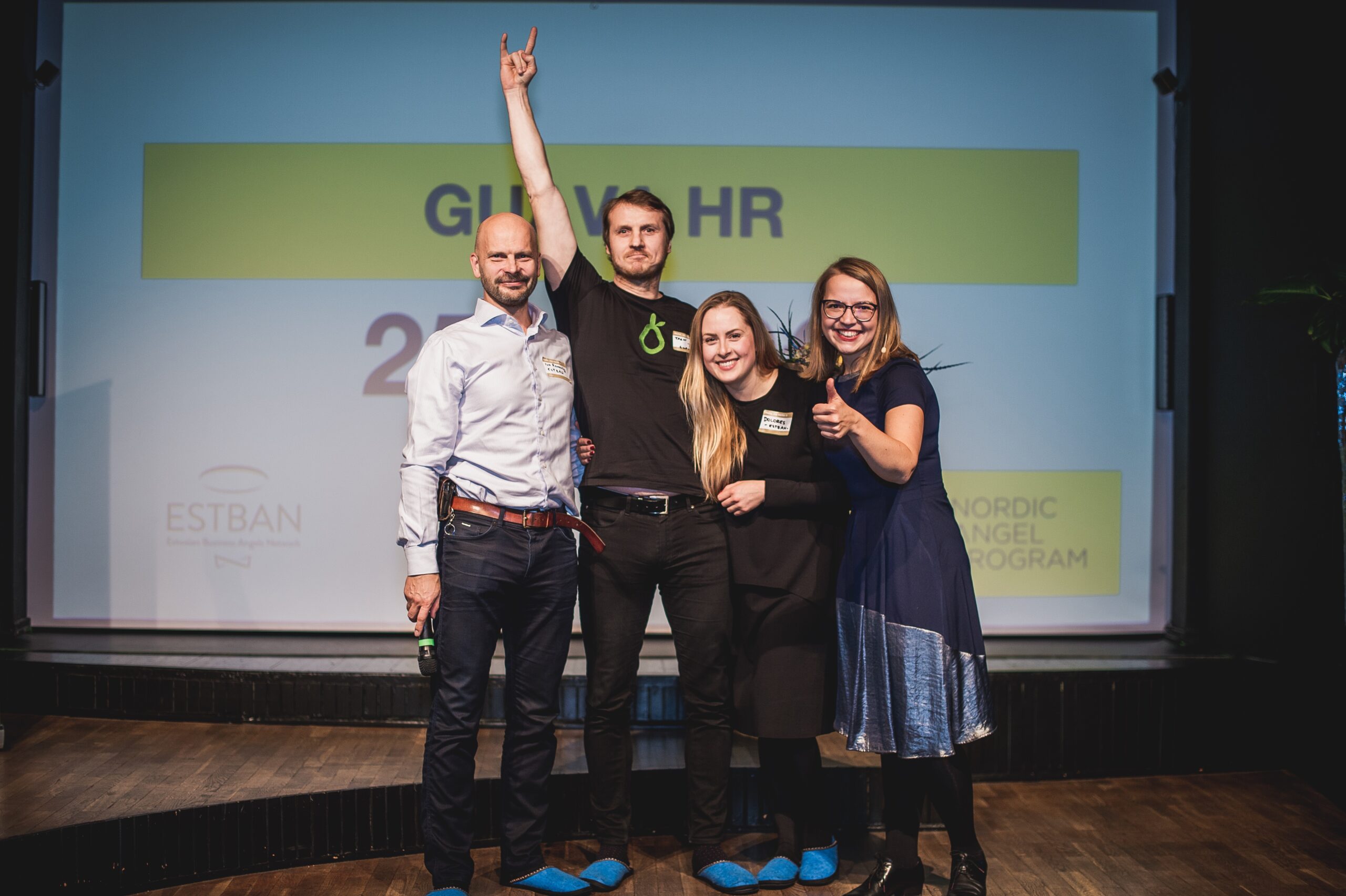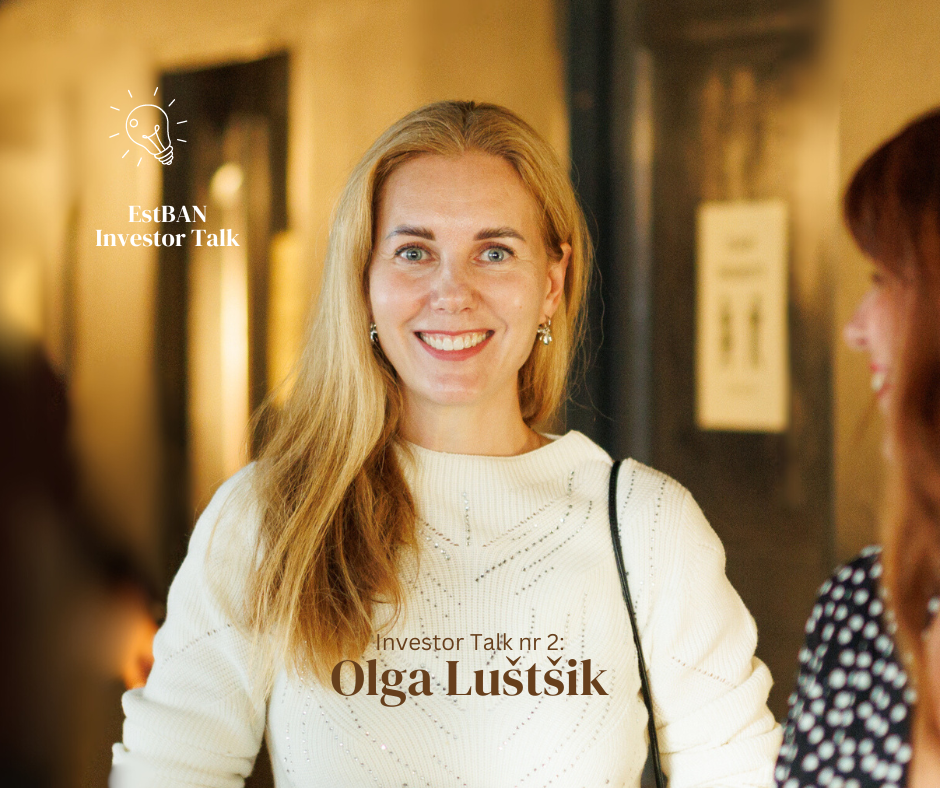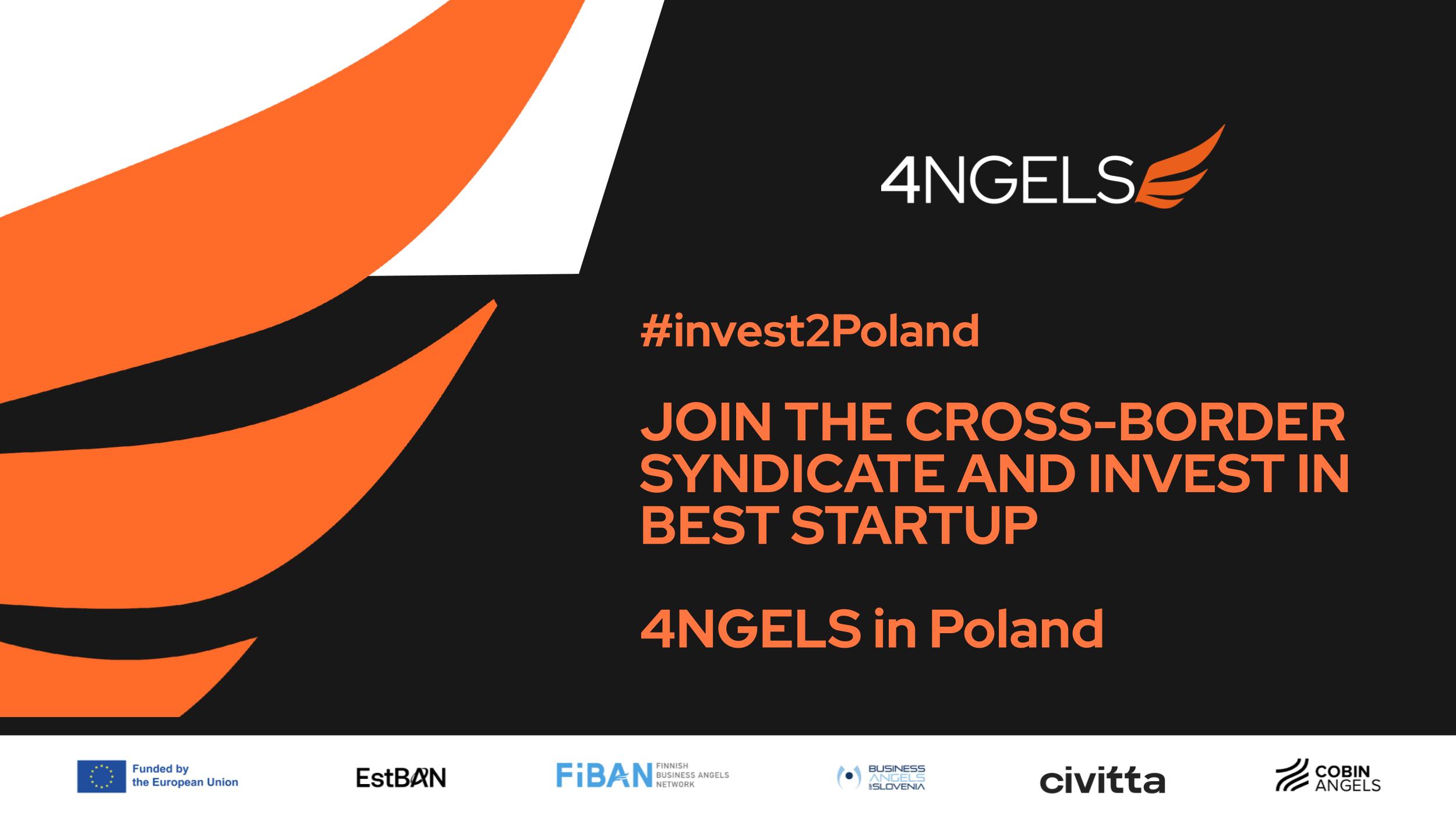Nordic Angel Program wrapped up on December 5 when 60 NAP participants – investors and startups – got together in Tallinn for the final pitch of NAP4 by EstBAN.
Finnish, Danish, Norwegian and Estonian business angels gathered in Tallinn to discuss the collaboration between the Nordic angel networks, hear the companies from the Nordics pitch their businesses, discuss the learnings and setbacks of the program. NAP brought together and trained 500+ angel investors who subsequently invested nearly 3.8M euros to 21 companies, giving them an opportunity to develop their business idea and expand their activities.
As Estonian NAP4 still hadn’t published the winner, the TOP companies from Estonian NAP pitched on the stage – employee engagement tool GuavaHR (Estonia), Amio(CZ), MySpotIt (Estonia). GuavaHR was announced the company to receive a €250 000 investment by the angel syndicate!
GuavaHR is an internal communication and engagement tool for companies where frontline workers make up a substantial part of the workforce. It combines social and organisational information feeds and spices them up with employee engagement drivers to create one engaging communication channel for the whole company. Guava plans on using the investment for expanding to the UK and hiring new talent to support marketing and development goals.
As for the Nordic Angel Program, the four angel networks are wrapping up the project but nevertheless continuing with international collaboration with each other as well as local startup events, training new investors and offering opportunities for the New Nordic region to flourish and work together.
Massive gratitude goes to the project partners, FiBAN, DanBAN, BanNorway, Civittaand NordicBAN, 100+ investors that participated in Estonia, 400 investors from other programs, 1800+ startups that applied for funding and also everyone that supported the progress throughout 4 batches internationally!
The Nordic Angel Program has received funding from the European Union’s Horizon 2020 research and innovation programme under grant agreement No 780747 .




